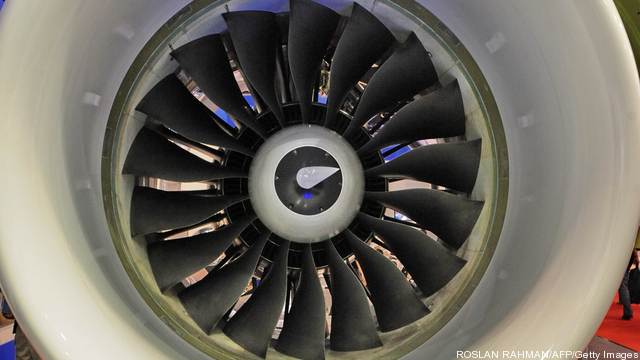
A billion dollars of investment later, US engine manufacturer Pratt & Whitney has begun flight testing its PurePower Geared Turbofan Engines. The new technology lowers fuel consumption, noise signature, greenhouse gas emissions and maintenance costs.
“The engine used a lot less fuel than we expected, we had to adjust the fuel load for the next flight,” Marc Kirner, Director of Flight Operations for Pratt & Whitney Canada told reporters at a recent media event in Hartford, Connecticut.
With fuel costs accounting for between 40% and 60% of an airline’s total operating costs, this new engine technology could mean significant savings. According to Jim Speich, the company’s Director of Marketing, the Geared Turbofan Engines can reduce fuel consumption by 15%.
At $3 per gallon for jet fuel, the lower fuel requirement could represent $900,000 per aircraft per year in savings gained from the efficiency improvements the engine features.
Delta Air Lines recently purchased a closed refinery intending to restart it as a way to control their fuel costs. Read more about that story, and what hidden expenses they may face here.
The reduction in greenhouse gas emissions is also touted as being significant, which could prove valuable in a future where carbon taxes are the norm. Every saved gallon of fuel eliminates 20 lbs of carbon dioxide emissions. Speich estimated an annual total of 3,600 tons of carbon dioxide emissions could be eliminated per aircraft.
The engines are currently being manufactured for use on single-aisle planes and emissions results would vary depending on aircraft size.
The company is currently testing the PW1217G engine that will be used on the Mitsubishi Regional Jet aircraft. The first flight test was conducted on April 30th at Pratt’s Mirabel Aerospace center in Mirabel, Quebec, Canada. The engine was tested on a Boeing 747 short body plane using a specially designed “stub wing.”
Biofuels could make up a significant portion of the aviation fuel portfolio in about twenty years
Following the initial flight test in Canada, the 747 was flown to Hartford, Connecticut for further testing and a media demonstration with Mitsubishi Aircraft North America executives and reporters.
At a press conference held to kick off the event, Vice President of Technology and Environment Alan Epstein said Pratt is working with the airline industry to cut harmful emissions through the use of improved engine technology.
In addition to improving engine efficiency for traditional jet fueled propulsion systems, Pratt is also working with the airline industry to grow the use of biofuels. The company has certified all of its engines to run on biofuels and is committed to working with fuel producers to increase output volumes and quality, said Epstein.
Scaling up production is a challenge Epstein said, but in his view biofuels will make up a significant portion of the aviation fuel portfolio in about twenty years. He told Breaking Energy that building smaller regional plants sited near major airport hubs – to reduce transportation costs – could be an efficient way to produce and deliver alternative aviation fuels. “If you build it, they will come,” said Epstein.
